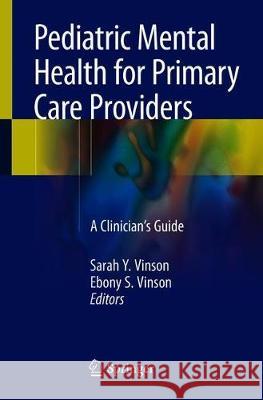Pediatric Mental Health for Primary Care Providers: A Clinician's Guide » książka
topmenu
Pediatric Mental Health for Primary Care Providers: A Clinician's Guide
ISBN-13: 9783319903491 / Angielski / Miękka / 2018 / 216 str.
Kategorie BISAC:
Wydawca:
Springer
Język:
Angielski
ISBN-13:
9783319903491
Rok wydania:
2018
Wydanie:
2018
Ilość stron:
216
Waga:
0.45 kg
Wymiary:
15.5 x 23.4 x 1.4
Oprawa:
Miękka
Wolumenów:
01











